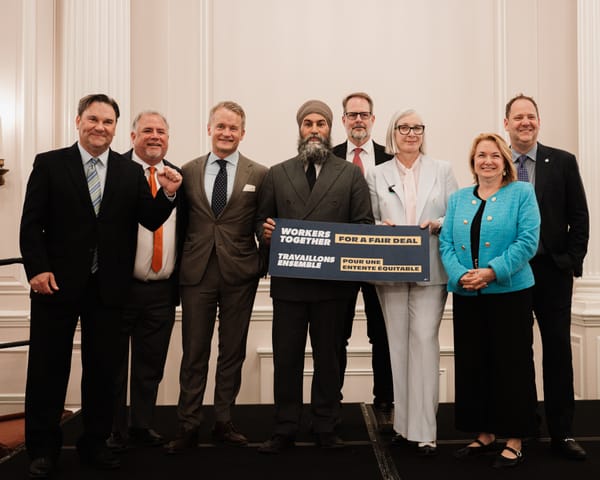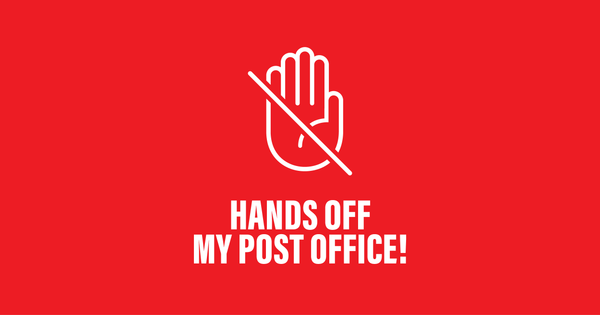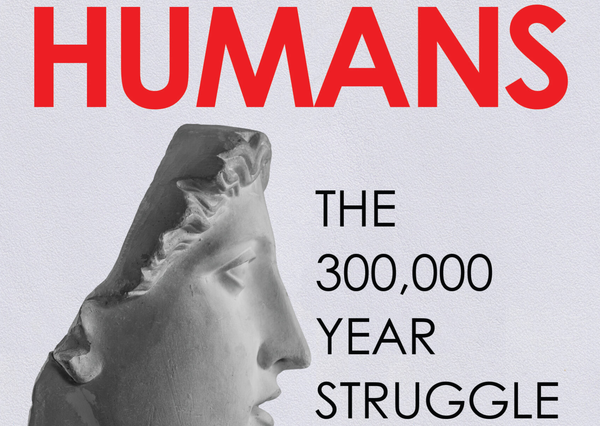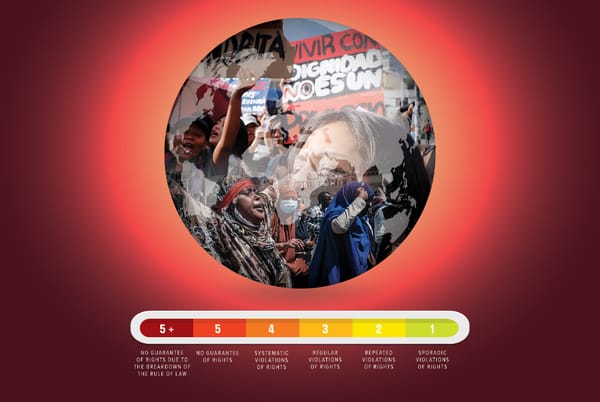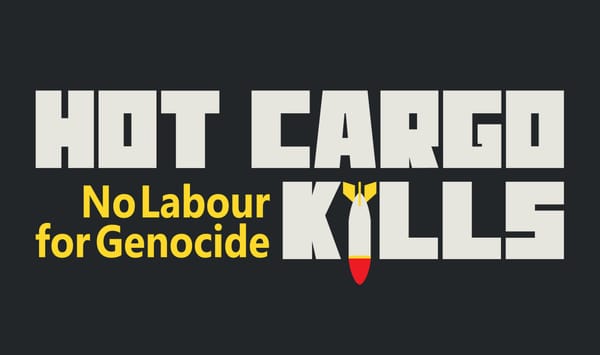
On January 27, much of the Canadian labour movement woke to the surprise news that Uber and the United Food and Commercial Workers (UFCW) union had “hammered out a historic agreement.” It’s never a good sign when many union activists are unaware that such an “agreement” was even under consideration, particularly when the union in question once publicly opposed Uber’s attempts to evade employment law.
This new national agreement will allow UFCW to “represent” the roughly 100,000 drivers and delivery people on the Uber app when they face deactivation or other account disputes, “if requested by the driver.” In other words, workers using the Uber app will not become UFCW members and will not bargain a collective agreement as a result of this new arrangement. The union will, however, meet regularly with the company to discuss health and safety and other related issues. As these union representational services will be provided “at no cost to drivers and delivery people,” the latter will also pay no dues. Not a great deal for the union.
Labour law professor David Doorey has written some helpful reflections questioning the lawfulness of the arrangement. In short, the agreement puts UFCW uncomfortably close to the position of a company union. Should another union organize and seek to certify a bargaining unit of Uber workers –— as the Canadian Union of Postal Workers (CUPW) through Gig Workers United has been actively doing — a labour board could question whether Uber’s deal with UFCW gives preference to the latter union, which would be a violation of labour law.
As the joint press release further indicates, “Uber Canada and UFCW Canada have also agreed to press provincial governments to enact reforms that provide new benefits and preserve worker choice on when, where, and if to work. Uber Canada and UFCW Canada will jointly advocate for these industry-wide legislative standards — like minimum earnings standard, a benefits fund, and access to workers’ rights — across the country.” Language was carefully chosen in the announcement: a “minimum earnings standard” is not minimum wage protection.
Uber is quite clearly engaged in what I would call an international hegemonic project, the twin pillars of which are lobbying governments to maintain employee misclassification, on the one hand, and finding willing union partners with whom they can form “representation” partnerships, on the other hand.
The first pillar of the project got underway with Proposition 22 in California. The strategy developed there involved Uber and other app-based employers conceding minor reforms, such as so-called “portable” benefits. In return, Uber sought legislation enshrining gig workers’ independent contractor status, denying them the rights and protections that come with formal employment, such as minimum wage and hour protections, and the right to form or join unions. “Flexible Work+,” Uber’s plan for Ontario, was the first Canadian version of this broader public policy strategy.
Unfortunately, though unsurprisingly, the Ontario government has signaled their approval of the general framework of Flexible Work+. The Ontario Workforce Recovery Advisory Committee (OWRAC), in its final report in December, endorsed the call for a “third category” of “dependent contractor” under the Employment Standards Act, which would grant app-based workers only partial employment protections. Premier Doug Ford’s government has yet to act on this recommendation, but the OWRAC’s report provides them with a semblance of legitimacy should they choose to legislate gig worker exclusion.
Following further on OWRAC’s recommendations, the Ontario government recently announced their intention to create a portable benefit program, largely designed for gig economy workers. The discussion around these so-called “portable” benefits has been especially confused. For starters, Employment Insurance (EI) and the Canada Pension Plan (CPP) are already “portable” benefits, insofar as they “move” with you no matter where you work. The insurable hours you accrue with EI don’t expire if you change jobs, and the contributions you make to CPP accumulate over your working life, no matter how many jobs you have. The problem of course is that, if you’re misclassified as an independent contractor, you don’t make contributions or have access to either of these universal social programs.
What I assume Uber and their willing government partners mean by “benefits” is extended health benefits, which are generally provided by employers and take care of items like dental, optometry and prescription drugs not covered by provincial health insurance plans. Ideally, Medicare would simply cover all of these things and no one would ever have to worry about losing benefits if they change jobs, become unemployed, or are (legitimately) self-employed. The policy fix, which has nothing to do with gig work or employment status, is to cover everyone, i.e. expand the welfare state. But insofar as Uber or any other employer wants to “give” their workers benefits, they can simply do that now; how gig workers are classified is an unrelated issue.
The second pillar of Uber’s international strategy — the more disturbing, in my estimation — involves convincing willing unions to sign onto “recognition” agreements. These deals see unions give up the fight against employee misclassification in exchange for substandard benefits.
The first of these union agreements came in May 2016, when the International Association of Machinists and Aerospace Workers (IAMAW) struck a deal with Uber to “represent” drivers in New York through the Independent Drivers Guild. Part of the agreement involved jointly lobbying the New York state government for a payroll tax to fund a benefit plan, to be administered by the Guild. While in many ways similar to the recent agreement with UFCW, this deal was more restrictive for labour. IAMAW agreed not to organize strikes or seek National Labor Relations Board certification for the union, and to not pressure government regulators to review the employment status of Uber drivers.
In May 2021, the IAMAW-Uber alliance and its lobbying efforts came to fruition in New York when draft legislation appeared which would have allowed gig workers to “unionize.” The bill, however, would have created a “new” classification for app workers (“network workers”) that was essentially no different from independent contractor status. It also, arguably, would have prohibited strikes. Thankfully, the proposed legislation was strongly opposed by other unions and labour advocates.
Also in May 2021, the GMB union announced a similar agreement with Uber in the United Kingdom, allowing that union to represent roughly 70,000 drivers. The details of the U.K. agreement are quite similar to the Uber-UFCW plan. Although referred to by GMB as a “collective agreement,” this deal also didn’t create a certified bargaining unit of GMB union members. Rather, it allowed drivers to seek assistance with deactivation and disputes from the union at pre-established “drivers’ hubs,” while maintaining the “flexibility” and “choice” of Uber drivers with respect to work schedules and union membership. Uber agreed to give the union access to drivers for organizing purposes and remain neutral. Much like the commitments to “lobbying” in Canada and the U.S., GMB and Uber agreed to “work together” on establishing “national earnings principles” and meet quarterly to discuss other issues, including health and safety and “discretionary benefits.”
Mick Rix, national officer of the GMB, quoted in the Guardian, said: “This groundbreaking deal between GMB and Uber could be the first step to a fairer working life for millions of people. History has been made. This agreement shows gig economy companies don’t have to be a wild west on the untamed frontier of employment rights. When tech private hire companies and unions work together like this, everyone benefits — bringing dignified, secure employment back to the world of work. We now call on all other operators to follow suit.”
Uber had previously lost an appeal in the U.K. Supreme Court, seeking to avoid treating its drivers as “workers,” a sub-category of employees in U.K. employment law that must still be paid the National Living Wage. However, even after this ostensible legal victory for labour, Uber continued to insist that drivers were entitled to the minimum wage only for the time they spend driving customers, not for their total working time. GMB has sought to rectify this issue.
A similar deal between Uber, Lyft and the Teamsters is on the horizon in Washington State, while the AFL-CIO in Connecticut was pushing a “sectoral bargaining” compromise in that state last year. In both cases, app-based workers would remain contractors.
This remains the general problem cutting across these union agreements: they all maintain the status quo of misclassifying Uber drivers as bogus self-employed contractors. Union leaders have attempted to paint this as a discursive issue that is getting in the way of engaging with the tech companies and improving conditions for workers. But in reality, the issue of employment status can’t be sidestepped. To do so simply means that unions end up “negotiating” below what workers should be entitled to under basic employment standards legislation. It makes no sense to “bargain” pay and working conditions below the level of minimum employment standards.
It’s clear from the comments of participating union leaders that they believe these “agreements” are a step along the way to organizing and improving the working conditions of app-based workers. However, signing onto a deal from a position of weakness is unlikely to build the power necessary to take on these giant corporations who have made employee misclassification and exploitation the core component of their business model.
Perhaps worst of all, these agreements sow further discord in the house of labour. In Canada, CUPW remains engaged in the longer-term project of organizing gig workers, fighting for full employment status and unionization. In New York, the New York Taxi Workers Alliance had planned a similar union campaign directed at Uber, prior to the IAMAW deal. Full employment status and deep organizing are the only foundation on which to build the worker power required to end app-based exploitation.



